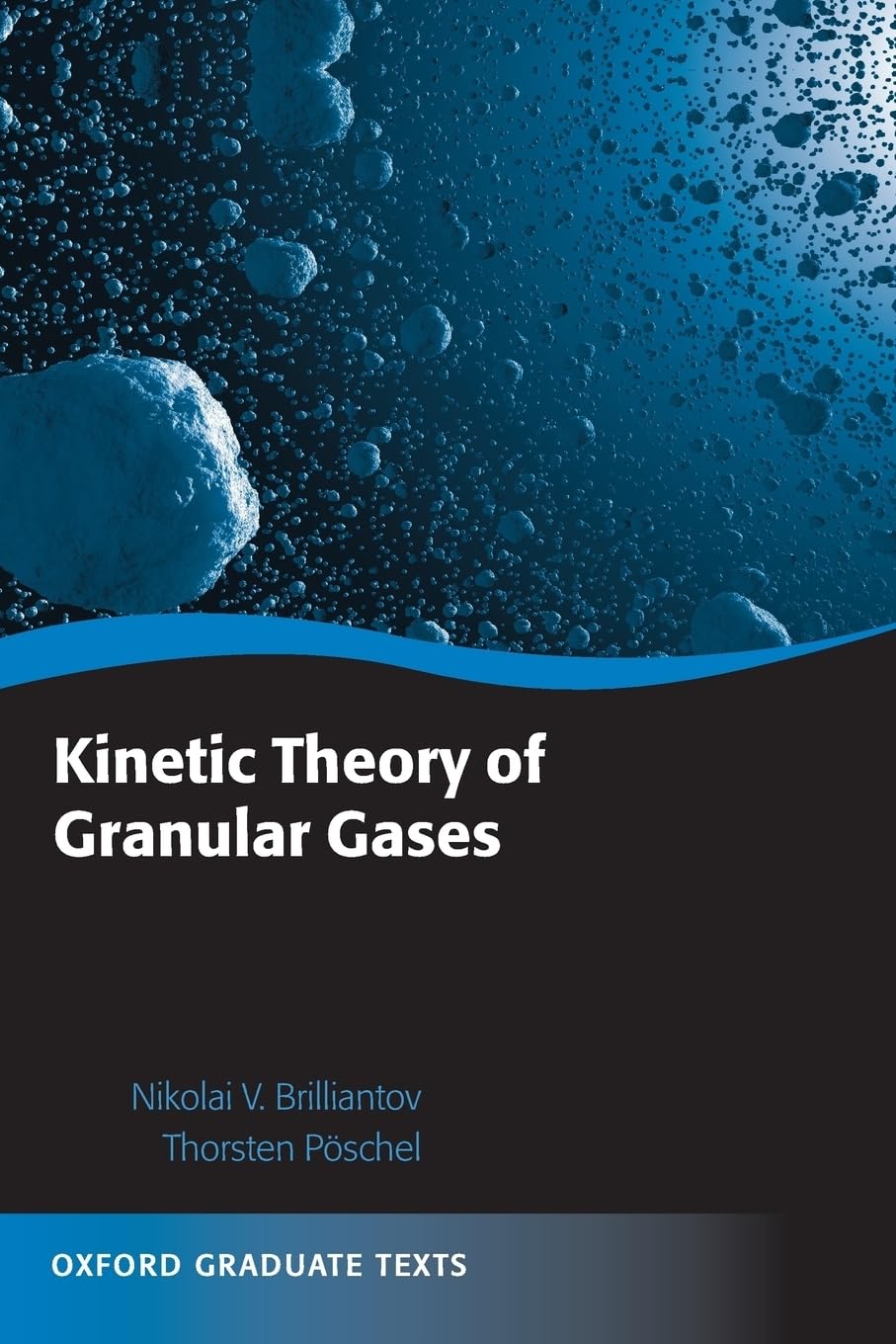Kinetic Theory of Granular Gases
Kinetic Theory of Granular Gases is backordered and will ship as soon as it is back in stock.
Couldn't load pickup availability
Genuine Products Guarantee
Genuine Products Guarantee
We guarantee 100% genuine products, and if proven otherwise, we will compensate you with 10 times the product's cost.
Delivery and Shipping
Delivery and Shipping
Products are generally ready for dispatch within 1 day and typically reach you in 3 to 5 days.
Book Details:
-
Publisher: Oxford University Press
-
Author: Nikolai V. Brilliantov
-
Language: English
-
ISBN: 9780199588138
-
Pages: 344
-
Cover: Paperback
-
Edition: Reprint
-
Release Date: 11-11-2010
-
Dimensions: 9.1 x 6.1 x 0.9 inches
-
Illustrations: 25 b/w line and halftone illustrations
About The Book:
Kinetic Theory of Granular Gases provides a thorough introduction to the rapidly developing field of dissipative gas dynamics, a theory that has significantly evolved over the past decade. Aimed at advanced undergraduates and researchers, this book presents the latest advancements in granular gas theory and leads the reader through current research in the field.
The book places special emphasis on a microscopically consistent description of pairwise particle collisions, leading to an impact-velocity-dependent coefficient of restitution. It explores the Boltzmann equation, starting with the derivation of the velocity distribution function, and extends to self-diffusion, Brownian motion, and transport processes using hydrodynamical methods. The text also covers the formation of self-organized structures and introduces novel mathematical techniques for deriving kinetic properties.
Key features:
-
Accessible to readers with a background in standard physics at the undergraduate level
-
Contains chapter summaries and exercises with detailed solutions
-
Includes two appendices on event-driven molecular dynamics and computer algebra techniques
-
Companion web page for downloading molecular dynamics and computer algebra programs
This self-contained book is suitable for a one-semester course and is an invaluable resource for anyone studying granular gases or involved in related research





